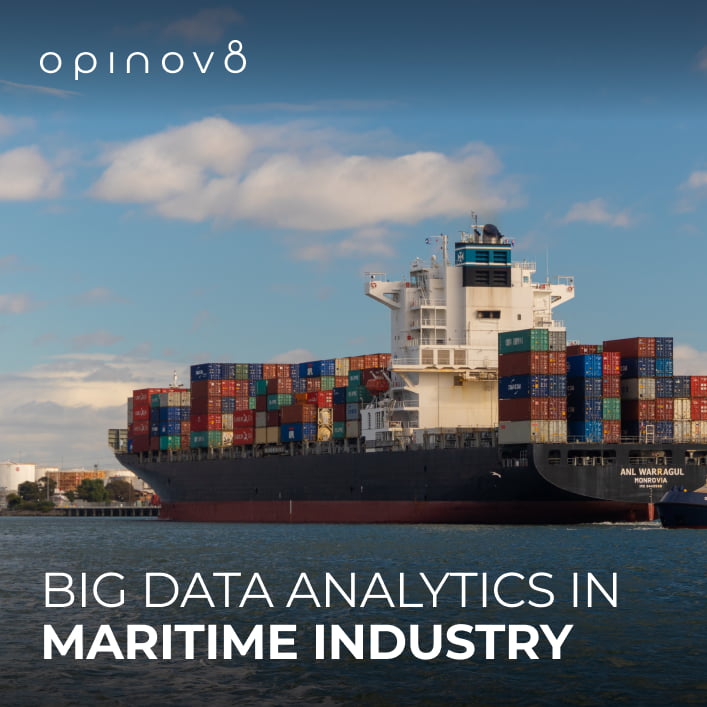
The maritime industry has always been complex, with various players involved, from charterers to shipowners and operators. In fact, the efficiency of operations in maritime easily reaches a five- or six-digit dollar worth in direct costs, together with more and more strict sustainability and environmental regulations, define a need for a modern, reliable and consistent operations management. Emerging level of connectivity, big data processing and big data analytics has brought about an opportunity to streamline it in the maritime industry. This is where Opinov8 comes in re-architecting an existing integrated data platform that helps charterers, shipowners, and operators to make smarter decisions based on intelligent insights derived from reliable data.
The client's platform provides a unified ecosystem that consolidates both owned and third-party maritime data powered by machine learning. Specifically, the platform helps reduce fuel costs, improves vessel performance, and aids in monitoring and reducing greenhouse gas emissions. Despite offering significant benefits to stakeholders, to respond to never-ending improvement demand, a next level of data governance was required, besides other gains, capable of streamlining standalone applications and services from the mergers and acquisitions. Heavy loads of data of different natures required data integration, timely availability, processing time, and consistency.
To address these issues, the Opinov8's team facilitated a set of Discovery Workshops that aimed to re-architect the client's data platform towards a cloud-based data processing solution, focused on the determined business and architectural drivers. Opinov8's team used rapid prototyping as the first milestone to achieve the unification of the cloud platform to Azure. This approach helped prove the concept and enabled seamless data migration.
Check out Opinov8, a leading advisor and partner for Azure services.
The solution provides rich operational and analytics data to make data-driven decisions. Reliable cloud-based architecture in Azure enables seamless integration of all data coming from 50,000 vessels globally and 7 million sensor readings daily. Enhanced data quality mechanism ensures data consistency and medallion architecture provides the right data for the right recipients, including the Machine Learning engine.
May interest you: 5 Things every project manager should know about cloud migration
Opinov8 specializes in creating customized services that enable businesses to make informed decisions based on data. We tailor our approach to meet each client's unique needs, ensuring effective and efficient solutions.

Take a look at Opinov8 Technology Services' Clutch profile.
Opinov8 announces its new recognition as an Amazon RDS Delivery Partner. This accreditation underscores our expertise in managing and optimizing relational databases using Amazon RDS (Relational Database Service). We work with various engines like Amazon Aurora MySQL, Amazon Aurora PostgreSQL, PostgreSQL, MySQL, MariaDB, and SQL Server. This recognition shows our ability to help clients set […]
Opinov8 announces its new recognition as an Amazon RDS Delivery Partner. This accreditation underscores our expertise in managing and optimizing relational databases using Amazon RDS (Relational Database Service). We work with various engines like Amazon Aurora MySQL, Amazon Aurora PostgreSQL, PostgreSQL, MySQL, MariaDB, and SQL Server. This recognition shows our ability to help clients set […]
How to provide the best service using the requirements testing? A basic and mandatory process for all Opinov8 projects. Find out how you can achieve this in your QA team.
How to provide the best service using the requirements testing? A basic and mandatory process for all Opinov8 projects. Find out how you can achieve this in your QA team.